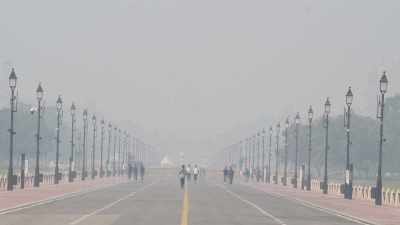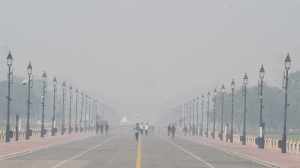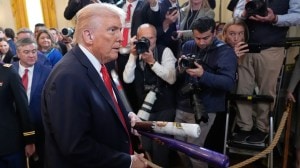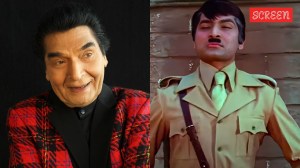Iran part of Pak-China nexus: Khan
WASHINGTON, JULY 2: In sensational new revelations that could drastically alter security perceptions and scenarios in Asia, Pakistani scient...

WASHINGTON, JULY 2: In sensational new revelations that could drastically alter security perceptions and scenarios in Asia, Pakistani scientist Iftikhar Khan Chaudhry is also telling US intelligence agencies of the assistance China is providing to Pakistan in developing nuclear weapons and the training both countries are giving to Iranian scientists in nuclear technology.
In a slew of media interviews in New York on Wednesday, the scientist also suggested that Iran, Saudi Arabia and the United Arab Emirates may have bankrolled the Pakistani nuclear programme. He saw Iranian scientists at key Pakistani facilities and read reports pointing to an oil-for technology deal, his attorney Michael Wildes said.
Wildes said Khan had personal knowledge of Chinese material, including heavy water and weapons-grade uranium which was being transported from China to Pakistan for use in their nuclear weapons programme.
If what Khan is saying is true, it could force the US to confront a scenario it has pretended does notexist an active China-Pakistan-Iran axis.
Washington has studiously ignored reports of its own intelligence community pointing to Chinese help to both Pakistan and Iran in nuclear and missile technology. It has also been blind to Pakistani proliferation of such technology. Dr Khan can provide the United States with previously undisclosed information on Pakistan’s nuclear development, including Chinese support and Iranian involvemen. “We are applying for political asylum to assure Dr Khan’s safety, and have enlisted the support of the US intelligence community to help locate his wife, Wildes said in a statement.
Khan also provided other significant insights into the Pakistani nuclear status in his various interviews. He said the nuclear facility in Khushab where he worked had enough enriched uranium to make 12 to 18 bombs. Pakistan had also deployed nuclear-armed Ghauri missiles alongside its border with India. But Pakistani officials are rubbishing Khan’s sensational stories and even questioning hisidentity. Islamabad’s UN envoy Ahmad Kamal said there had no defections or disappearance of any Pakistani scientist and this whole thing made no sense.
“This man is a total fraud. He has an identity card which is a forgery, and its a bad forgery at that, Kamal was quoted as saying in the New York Times, which reported that Khan had produced a photostat of his I.D card from the Pakistan Atomic Energy Commission.
However, other reports from Pakistan including one in the Washington Post confirmed that Khan did hold the position he claimed to have had until he left in April, when he claims he was fired in a confrontation with his superiors. But Pakistani officials there were also saying he was a low-level employee who would have not had any access to Islamabad’s nuclear plans.
Attorney Wildes however defended Khan as a genuine item. With first-hand knowledge of Pakistan’s receipt of nuclear information from China and a growing nuclear relationship between Pakistan and Iran, Dr Khan believes his life is indanger, Wildes said in a statement, asking the US government to protect this brave man on our soil.
Pak Atomic Energy Commission’s rebuttal
Pakistan has said that its Atomic Energy Commission never had an officer called Iftikhar Khan Chaudhry. Samar Mobarak-Mand, who headed Pakistan’s nuclear test team clarified that one Iftikhar Chaudhry worked for the Pakistan Atomic Energy Commission (PAEC) some 18 years ago and had resigned on his own accord.
Mand told journalists in Islamabad that his organisation had checked their records and did not find any one by the name of Iftikhar Chaudhry on its rolls and that the post of Assistant Research Officer did not exist in the organisation.
“Even if we did have such a position, it would come in grade 16 and such junior officers are never invited to top secret meetings. They don’t even know what happens in these meetings,” said Dr Mand.





- 01
- 02
- 03
- 04
- 05


























